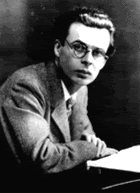Thursday, January 21, 2010
Weekly Blog Post 2
The opening sequence of the sped up erasing of the words on paper contained a powerful message. This scene effectively shows the mixing of the past and present. The graphite words on the blank sheet of white paper are representative of how in the recent past most writing was executed. But the way that this image is displayed in the sped up video sequence hints at how text is communicated today. As the video progresses, it gives way to text appearing in search engines and HTML's. This juxtaposition of the past versus the present was one of the most apparent themes within the video- how the internet is broadening and expanding our view of rhetoric. These changes have come swift and hard. We have gone from putting pen (or pencil) to paper to using other mediums as forms of text- from email to Facebook to blogging. These new forms of text add to the ways that an audience can experience writing. It can come to the recipient from far away, in the case of email, and be waiting in the virtual world for them to receive and respond. But it can also come instantaneously and be returned just as fast, or just sit and wait for an audience to come along in the wide abyss that is the World Wide Web. The type of word usage has also changed with how we are communicating- words are being shortened for quick exchange and sentences are being chopped for the same purpose. This type of communication seems very temporary and fleeting as compared to the permanence of words in pen on paper.
Tuesday, January 19, 2010
Weekly Blog Post 1
 "A bad book is as much of a labour to write as a good one; it comes as sincerely from the author's soul." --Aldous Huxley
"A bad book is as much of a labour to write as a good one; it comes as sincerely from the author's soul." --Aldous HuxleyWe have all read good books that we fall back to over and over again and we have all read really bad ones that we toss aside, maybe even before we finish. But have we ever really thought about what caused the author to create the book? What was the author thinking as they typed this horrible novel where every main character was killed off in a horrific submarine accident three pages from the end? Every book or article or any written piece has a meaning-- whether it is for the author or for the audience. A lot of time and effort goes into the composition of a book on multiple levels, through the creation of the book and the editing by the publishing company. A sense of purpose drove the author to write the book, whether it was to impact the future of our society or just one individual’s outlook on life. Even if the story itself cannot be appreciated, the contributing factors and purpose behind the composition can.
I agree with Huxley that every word of a book is a piece of the writer's soul. So much time and effort is put into creating a book that even if the piece started out as nothing special, just the sheer amount of time spent with it would cause the writer to grow a personal attachment. This can even happen to the most inexperienced of writers.
I appreciated this quote on a personal level because of the relevance to my life. Last semester I gained an appreciation for my writing in a way I never have before, after the conclusion of my online portfolio for English 150. Upon completion, I felt as if I was sending my “child” into the virtual world. It was fascinating for me to see the attachment that my classmates and I had grown for our writing projects over the course of the semester. It seems than now, every piece of writing that I contribute in a classroom, or where ever, becomes a small piece of my soul. This eye-opening experience is still fresh for me, making this particular quote to stand out.